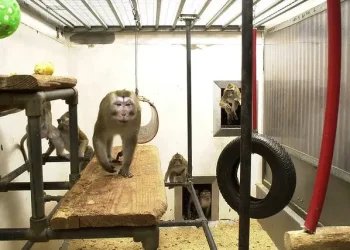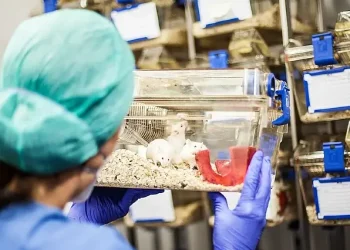The UK government has announced plans to reintroduce beavers into the wild in England, marking a significant step in nature conservation. This initiative aims to leverage the ecological benefits of beavers, such as improving biodiversity and water quality while reducing flood risks.
Ecological Benefits of Beavers
Beavers are often referred to as “ecosystem engineers” due to their ability to create habitats that benefit numerous species. Their activities can significantly enhance biodiversity and improve water quality, which is beneficial for both ecosystems and human communities.
By building dams and creating wetlands, beavers help mitigate climate change effects by storing carbon and regulating water flow.
Their natural engineering skills also contribute to reducing flood risks. For example, a case study from the Czech Republic demonstrated how beaver activity saved local authorities €1 million by preventing flooding.
These ecological benefits make beaver reintroduction an attractive option for enhancing environmental resilience.
Management and Licensing
Natural England will oversee the reintroduction process through a licensing system designed to ensure careful management of potential conflicts with human activities.
This approach aims to balance ecological benefits with agricultural productivity and infrastructure protection. The first licensed release site is the National Trust’s Purbeck Beaver Project in Dorset.
Stakeholder involvement is crucial for successful integration. The government plans to consult with farmers, landowners, and local communities throughout the process.
This collaborative approach seeks to maximize benefits while minimizing risks associated with property damage or agricultural impacts.
Community Engagement Highlights
- Consultations with farmers and landowners
- Involvement of local communities in decision-making
- Focus on minimizing agricultural impacts
- Emphasis on maximizing ecological benefits
- Collaboration with environmental organizations
Comparative Conservation Strategies
This announcement builds on previous efforts like the River Otter Beaver Trial, which provided valuable insights into managing beaver populations in controlled environments.
The shift towards wild releases marks a significant step forward in nature recovery efforts, aligning with broader government strategies aimed at enhancing biodiversity.
The UK’s approach can be compared with similar initiatives in other countries that have successfully integrated beavers into their ecosystems. Learning from international best practices can help refine strategies for effective management and conflict resolution.
| Category | Description | Status |
|---|---|---|
| Pilot Project Location | Dorset (Purbeck Beaver Project) | Licensed for Release |
| Ecosystem Impact Study | Czech Republic Flood Prevention | Completed |
Additional Reading
Quotes from Key Figures:
“Beavers are cherished creatures who bring so many benefits for people and our precious natural environment,” said Mary Creagh, Nature Minister at the Department for Environment, Food & Rural Affairs.
“They create wetlands which are havens for wildlife, reduce flood risk and improve the water quality of our rivers.”
Tony Juniper, Chair of Natural England stated,
“Beavers have been missing from our landscapes for about four hundred years…The dams they build not only create amazingly rich habitats but can also help reduce flood risk.”
“This is fantastic news for nature recovery,” said Hilary McGrady,
“Beavers are unparalleled in their ability to restore landscapes.” She is Director General at National Trust UK.
Alan Lovell,Chair at Environment Agency UK said,
“As part of our work…the return of wild beavers will improve water quality, boost biodiversity through nature-based solutions.”
Final Thoughts
The reintroduction of wild beavers represents an important milestone toward restoring natural ecosystems across England.
Their presence promises numerous ecological advantages including enhanced biodiversity, flood mitigation, and improved water quality.
With careful management, this initiative could serve as a model globally demonstrating how humans coexist harmoniously alongside these remarkable creatures.
SOURCES: UK Government, National Trust, Beaver Trust, Department for Environment, Food & Rural Affairs and Natural England.









